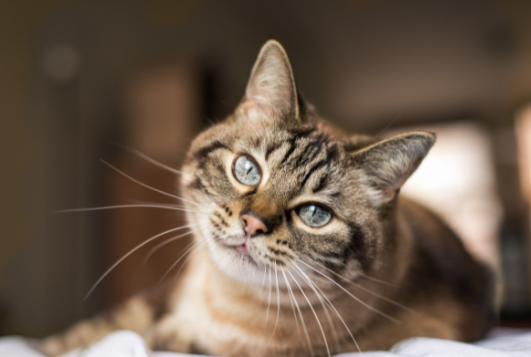There are many benefits to neutering your cat, and as a responsible pawrent, it is important that you make sure your cat is neutered or spayed. Please note, you should always consult your trusted veterinarian when it comes to the health and wellbeing of your four-legged friend.
Apart from the obvious benefit of reducing unwanted pregnancy, there are many advantages to neutering:
- Removes the risk of diseases such as FIV (feline HIV) and uterine infections
- Reduces their drive to roam, especially in male cats, in turn reducing likelihood of being involved in road traffic accidents
- A female cat in season can be very loud as they call to other cats which attracts other cats on to your property. They undertake this call day and night when in season, which can be disruptive for their pawrents and neighbours. Neutering your female cat means they will not go through this.
- Stops the need for spraying in your home to mark their territory
- Reduces their want to engage in fights with other cats
What is neutering?
A surgical procedure which is undertaken to prevent reproduction in male and female cats. There are different techniques used by each vet. General anesthetic is needed for all procedures, with your cat usually going in that morning (after a period of fasting the night before – whatever is recommended by your vet) and picked up later that day after the procedure and some monitoring.
How long is recovery?
This all depends on your cat! But usually, your cat will be a little drowsy for a day or two and slowly making it back to their normal self within a few days. Full recovery (healing of the skin) generally is around 10 days. Always make sure to check their wound and contact your vet immediately if you have any concerns about their recovery.
Your cat will usually be sleepy, walking more slowly, eating less, appear a little ‘zoned out’, and jump less. Your vet will tell you common symptoms to look out for, but if you are worried about any behaviours, contact them immediately for advice.
What can I do to help them recover?
- Provide a quiet, calm area for them. If you have a busy household, it would be advised to pick an area to isolating them from others that might hinder their recovery (excited children or other pets). Make sure this area has low lying places for them to rest, is warm, subtle lighting and they have access to food and water. Follow your vet’s feeding instructions.
- Keep your cat indoors. This means you keep them in their isolated area. When outside, cats will usually jump and run around – not advisable after surgery. It will also make it easier for you to monitor their wellbeing.
- Check the surgery site at least once a day to make sure it is not swollen, bleeding, red, licked at or weeping. If you find any of this contact your vet immediately! Your vet will probably provide you with an ointment to keep the area coated.
- Use the recovery collar if it has been provided to you. Your vet may provide you with one to make sure their surgery site is clean and to prevent them liking the wound.
- Give them loads of attention! Your cat will not be feeling great and will need a little extra TLC. This will help with any anxiety they have after their surgery and being confined to a new routine while they recover.
Soon they will be back to their normal, happy self, and grateful for a caring and responsible owner like you!










